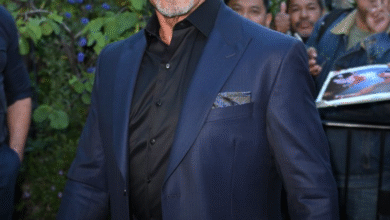Why ‘Die Hard’ Is Definitely a Christmas Movie, According to Alfonso Cuarón
OPINION: This article may contain commentary which reflects the author's opinion.
Every holiday season, a familiar debate surfaces online, in living rooms, and at office parties: Is Die Hard a Christmas movie? For some, the answer is a resounding yes; for others, it’s a firm no. But if anyone’s opinion carries significant weight in this festive controversy, it’s Alfonso Cuarón—the acclaimed filmmaker behind Y Tu Mamá También, Children of Men, Gravity, and Roma, and an outspoken advocate for Die Hard as a bona fide Christmas film.
The Classic Debate: What Makes a Christmas Movie?
At its core, a Christmas movie should check a handful of essential boxes: Christmas iconography, festive music, repeated references to the holiday, and a storyline that could only realistically unfold during the Christmas season. By these criteria, Die Hard fits perfectly.
Set during an office Christmas party at the Nakatomi Plaza, the film is steeped in holiday cheer—and chaos. From the “ho-ho-ho” scrawled on a henchman’s sweater to the soundtrack’s inclusion of classics like “Winter Wonderland,” “Christmas in Hollis,” and an instrumental “Let It Snow,” the festive atmosphere is unmistakable. Plus, John McClane’s very presence in Los Angeles hinges on attending his estranged wife’s Christmas party.
Alfonso Cuarón’s Take: More Than Just a Festive Backdrop
While critics have long argued over the film’s classification, Cuarón cuts through the noise with a thoughtful reflection. Speaking to The Hollywood Reporter, he said, “Ultimately, Christmas is the end of darkness and the beginning of light. It’s a celebration of hope and possibilities, and it’s a time of introspection before we start anew.”
For Cuarón, Die Hard embodies these themes perfectly. Bruce Willis’s John McClane isn’t just shooting terrorists—he’s trying to do right, to save his wife, and to find redemption amidst chaos. “I am all for Die Hard as a Christmas story. I cannot define why and I don’t need to define why,” he added.
This perspective from a four-time Academy Award-winning director—known for his mastery of storytelling and cinematic craft—adds a compelling voice to the debate. If Cuarón and John McTiernan, the film’s director, both affirm Die Hard as a Christmas movie, that may settle the matter for many.
Bruce Willis’s Contrasting View
Interestingly, Bruce Willis himself reportedly disagrees with the holiday classification, which presents a curious counterpoint. Despite embodying the film’s heroics—jumping off buildings, battling terrorists, and enduring broken glass in his feet—Willis doesn’t view the movie through a festive lens.
Still, Cuarón doubles down with a simple yet poignant definition: “It’s when Bruce Willis tries to save his wife.” That narrative, rooted in love, hope, and renewal, perfectly aligns with the spirit of Christmas, even if the film is wrapped in explosions and gunfire.
Conclusion: A Christmas Classic in Its Own Right
Whether you’re team Die Hard Christmas or not, Alfonso Cuarón’s insights remind us that the holiday spirit isn’t always about traditional carols and snowy scenes—it’s about the deeper themes of light overcoming darkness and the chance for new beginnings.
So this holiday season, as you debate the merits of Die Hard alongside your favorite Christmas classics, consider that maybe it’s not just about tinsel and eggnog, but about the heart beneath the action. And in that sense, Die Hard just might be the ultimate Christmas movie.



